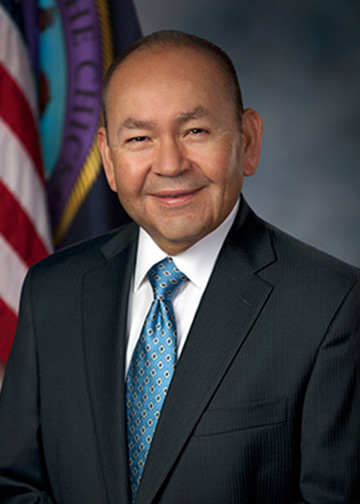
Governor Bill Anoatubby
Education leads to great opportunities and tribal progress
By Bill Anoatubby, Governor, Chickasaw Nation
Throughout much of our history, formal education has been of vital importance to the Chickasaw Nation and Chickasaw people. Education can be used as an instrument for personal empowerment and growth, as well as the growth of our community as a whole. Time has proven that supporting and offering various learning experiences leads to greater opportunities for Chickasaw citizens and is important to tribal progress.
In our early history, knowledge and education were passed down generation to generation through storytelling and practical lessons. Eventually, the importance of a modern education to the future of our people became clear. Chickasaws educated children at schools in our Homeland and re-established schools and academies in Indian Territory following removal.
McKendree Academy opened in Indian Territory and would later become the Chickasaw Manual Labor Academy and, later, Harley Institute. Soon after, additional schools were developed that would broaden our understanding of the changing world, including the Wapanucka Female Manual Labor School, Bloomfield Academy for Chickasaw Females, the Colbert Institute and Burney Institute for Girls, among others. Educational facilities continued into the late 1900s, with Carter Seminary in Ardmore.
After regaining much of our autonomy and self-determination in the latter half of the 20th century, expanding educational opportunities for Chickasaws became a critical area on which we would focus a tremendous amount of resources.
In the 1980s, while still reliant on federal funding, higher education scholarships were available for only 150 students. Today, as a result of increased and sustained revenues, thousands of Chickasaw students of all ages reach their educational and career goals each year with assistance from our higher education and career technology programs. Last year, the tribe awarded more than 5,500 Chickasaw students with approximately $29.3 million in financial support.
Additionally, the Chickasaw Institute of Technology and Chickasaw Employment Access offers various training opportunities and programs to ensure career readiness and success.
We have also devoted many resources to offering support for our students and youth such as camps, clinics, academies, after-school programs, Chickasaw Youth Clubs, tutoring assistance, good grade incentives, artistic enrichment and much more. In fact, many of our youth will soon be taking part in our summer camps, which range from sports and culture to the arts and sciences. Through these opportunities, our youth can explore and learn, build meaningful cultural connections and develop lasting skills for future success.
With an emphasis on ensuring education and supportive needs are met starting early on in life, early childhood education is also a crucial investment. Opportunities include child care assistance and child development centers, preschool and Head Start programs, family support and more.
We are also celebrating the 20th anniversary of the Chickasaw Children’s Village this month and the profound impact the facility, employees and staff have had on the lives of hundreds of our youth. For two decades, the Chickasaw Children’s Village has extended remarkable support and educational opportunities for its students, ensuring they have the resources to achieve academic excellence while also fostering a strong bond of community.
Knowing the importance of quality education, resources and opportunities, we are committed to offering a diverse range of learning, training and educational support for Chickasaws of all ages, no matter their location, as well as adapting to meet evolving needs and interest in exciting and innovative ways. By honoring our past and emphasizing the importance of education, we are continuing to build our bright future.